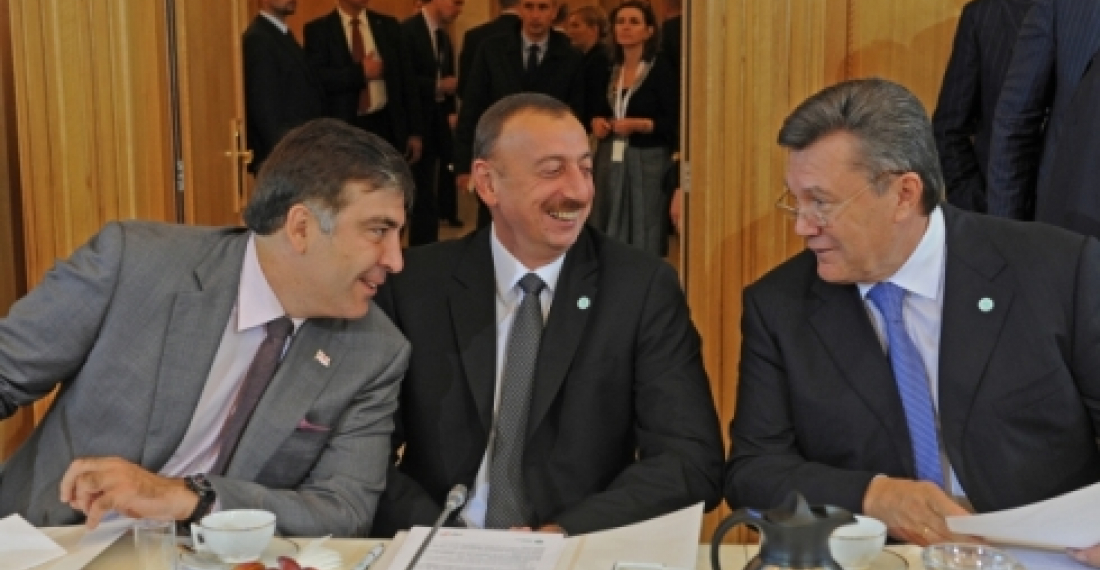When European leaders meet their counterparts from the Eastern neighbourhood, they are often heard saying that like good friends, they feel obliged to raise difficult issues that may not be to the liking of their audience. For a moment in Warsaw last week it seemed that the tables were turned. The Eastern partners were doing some talking of their own, and the EU members had to listen impatiently.
The topic was Belarus. The EU hoped for a united position with the Eastern neighbours in putting pressure on Belarus on its record on democracy and human rights. Concern on Belarus within the EU had been building up for some time. The European Parliament has discussed the issue on many ocassion and has been stern in its criticism. Member states have also raised their concerns in different way, and eventually an EU wide consensus emerged. It was hoped that by brining in the Eastern Partnership countries to add their voice Belarus will feel more isolated and will take steps on the long awaited path to reform. Belarus had participated in the preperation of the Warsaw summit. At first it indicated it would be present with its foreign minister, later this was downgraded to its Ambassador in Warsaw. In the end it did not participate at all. So there was an opportunity for the summit to speak with one voice. The other Eastern partners (Armenia, Azerbaijan,Georgia, Moldova and Ukraine) would have none of it.
A strong statement on Belarus was issued by the European Union members on their own. It offered Belarus an attractive assistance package in return for free elections, the release of political prisoners and a meaningful dialogue with the opposition. The final declaration of the Summit itself did not mention Belarus at all.
So was this a case of difficult ungrateful neighbours, or were the Eastern partners simply acting like good friends, and saying the truth even if it was difficult?
The main reason, quaintly referred to as "some reason" by Commission Chairman Barroso at the final Press Conference, was a concern expressed by the Eastern Partners that Belarus should not be isolated, but needs to be engaged with. This was spelled out by Georgian President Mikhail Saakashvili with his usual gusto. “It is very important for the EU not to lose control over this process and not to [allow] another great neighbor [referring to Russia] to seize this process,” Georgian media quoted Saakashvili as saying.
The Georgian President added that “It was bad that there was no Belarus representative in the hall and we have noted it – it was very bad. It is important for the next summits to do the utmost, including through dialogue and negotiations – EU is right when having a dialogue with the [Belarus] civil society representatives – at the same time talks based on principles should be carried out with official Minsk so that they take their seat on the negotiating table. This is important to foster European development of Belarus – we have noted it clearly here and the EU should be an important player in this process".
Some observeors however consider this concern for Belarus as hypocritical. A western diplomat in Warsaw reflected that by ensuring that there was no criticism of Belarus in the summit declaration this time, the Eastern partner leaders were ensuring that there will no criticism of their own countries next time.
Other observors also noted that since 2008 Georgia has been terrified of the prospect that Belarus might recognise Abkhazia and South Ossetia and has stoped its criticism of Minsk on human rights - an issue on which Georgia had been vocal about after 2003.
Regardless of the reasons however the argument of the need to engage rather then isolate is a strong one. This disagreement outlines some of the difficulties ahead for the Eastern Partnership. The recent EU policy "more for more" - more assistance and more relations in return for more reforms may not be as easy as is hoped. Apart from Belarus, another issue loomed over the summit, the continued detention in Kiev of former Prime Minister Yulia Timoshenko. No mention of that in the final declaration either.
The summit did map out ways for developiong relations between the EU and the partner countries in a wide range of fields. These are tangible issues and if implemented will take the relationship to a higher level. But conditionality is now also an essential part of the EUs approach to the region. By standing firm on Belarus the European Union was also signalling to the other five partners that this was now being taken seriously.
source: prepared by the editorial team of commonspace.eu
photo: The presidents of Georgia, Azerbaijan and Ukraine at the Warsaw Eastern Partnership Summit (picture courtesy of the Polish Government)







